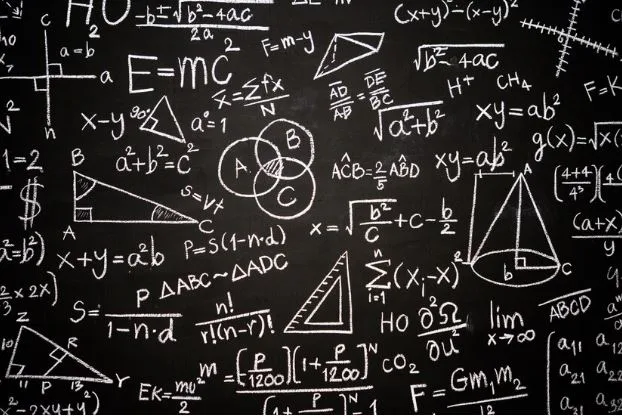Numbers, formulas, and equations; for many, these are the symbols of the dullest and most forbidding aspects of education. However, what if we could convey a different perspective? What if we could demystify the stereotypical view of math as a mere tool for calculating bills and instead position it as the cognitive workout for the brain that it truly is? In this exploration, we’ll uncover how mathematics activates and accelerates the human brain, unravelling its complexities to enrich not just our academic skills but our overall cognitive function.
The Mathematics-Brain Connection
The human brain is often likened to a muscle that requires training to stay fit and sharp. Mathematics, with its intricate logic and problem-solving intricacies, offers the perfect mental gym. When we engage with complex mathematical tasks, our brain’s neuroplasticity is activated — the ability of our neural networks to reorganise, adapt, and form new connections.
When we solve mathematical problems, we employ various areas of the brain. The frontal lobes, responsible for executive functions and complex thinking, are in overdrive, while the parietal lobes, associated with spatial reasoning, also play a significant role. Through structured math learning, individuals effectively exercise these important areas and, in turn, enhance their cognitive capabilities.
Math as a Catalyst for Critical Thinking
The study of mathematics trains the brain to think critically and logically. By learning to prove theorems, reason through problems, and make inferences, individuals hone their critical thinking skills.
The rigorous nature of mathematics also instils a discipline of thought. Unlike many subjects where ambiguity can be tolerated, mathematics demands precision and clarity, pushing learners to think rigorously and accurately. This ability to think critically and precisely is a valuable asset in all areas of life, from decision-making in personal matters to problem-solving in professional endeavours. Consider doing the Maths Functional Skills Entry Level 3 E-learning Course which help you strong your thinking ability.
Enhancing Problem-Solving Skills
Mathematics is, at its core, a study of patterns and relationships, which are fundamental to the development of problem-solving skills. Whether solving an algebraic equation or unravelling a complex calculus problem, individuals trained in math develop a resilience toward facing and overcoming challenges.
In everyday life, this translates to an enhanced ability to address problems methodically, breaking them down into manageable steps. Furthermore, the development of problem-solving skills through math potentially leads to a more efficient and resourceful approach to overcoming challenges, contributing positively to personal and professional success.

Math and Memory Retention
Engagement with mathematics has been linked to improved memory function. Memorization is a fundamental aspect of learning math, and as students commit formulas and equations to memory, they exercise their brains in a way that enhances memory retention for a wide range of subjects and information.
When solving problems, individuals often employ their working memory — the part of the brain that retains and manipulates information in the short term. This type of memory is crucial for learning and understanding new concepts, meaning that a strong foundation in mathematics can lead to improved working memory and, subsequently, easier acquisition of new knowledge.
The Art of Adaptation Through Mathematics
Adaptive learning is the holy grail of education, and mathematics is an unparalleled tool in this pursuit. The progression from basic arithmetic to advanced calculus is a finely tuned ladder of complexity. Each step challenges the student to adapt their thinking and problem-solving strategies, ensuring that the brain remains agile and versatile.
This adaptive approach to teaching and learning mathematics encourages the brain to be flexible, open to change, and capable of tackling novel challenges. In a world where the only constant is change, the adaptability fostered by a mathematical mindset is invaluable.
Boosting Brain Processing Speed
The link between mathematics and brain processing speed is also well-documented. The processes of understanding and solving complex mathematical problems require the brain to operate at high speeds, processing information efficiently.
By regularly engaging with math, individuals can literally speed up their cognitive processes, making connections more rapidly and responding to challenges with quick, reasoned solutions. This enhanced processing speed is not exclusive to math but is transferrable to all cognitive tasks, leading to an overall increase in mental efficiency.
Mathematics as a Tool for Emotional Regulation
Only sometimes recognized, the study and practice of mathematics can also support emotional regulation. The structured nature of math problems can provide a sense of order and control in a world that often feels chaotic and uncertain.
Additionally, the concrete and unchanging nature of math means there are clear right and wrong answers, with no room for personal interpretation. For some, this clarity can be a source of comfort. By integrating mathematics into our daily activities, we can improve our ability to regulate our emotions and make decisions without being clouded by subjective factors.
Harnessing Mathematics for Digital Literacy
In an increasingly digital world, mathematical literacy is akin to learning a new language — and the brain treats it as such. The mental gymnastics required to code a computer program or to understand complex data analytics are parallel to those needed for advanced mathematical problem-solving.
By strengthening our mathematical prowess, we are not only enriching our cognitive abilities but also paving the way for a deeper understanding of the technologies shaping our lives. This, in turn, allows us to be more active, informed, and effective users and creators within the digital landscape.

Conclusion
The correlation between mathematics and brain function is extensive and profound. By engaging with math, whether through formal education or independent study, individuals can unlock the full potential of their cognitive abilities. Mathematics, often feared or misunderstood, should be celebrated for its capacity to shape sharper, quicker, and more adaptable minds. In an age where the pursuit of self-improvement and lifelong learning is paramount, the study of math stands out as a formidable ally in the quest to achieve optimal brain performance.




